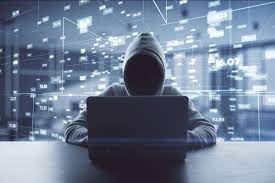
In a first, the Ministry of Home Affairs has planned a two-week cyber crime course for judicial officers to give them detailed knowledge of its spread.
Sources said names were sought from various states for the first batch which will start in the second week of January. They added that judicial officers will attend the course — designed with help from investigators and experts — at the Indian Institute of Public Administration (IIPA).
A senior official said the idea behind starting the new project was to give insight into cyber crime and related financial crimes to judicial officers so that they can understand the practical as well as technical aspects. This, in turn, would help the system become more robust, fast and efficient, the official said.
The ministry’s Cybercrime Coordination Centre (I4C) identifies the research problems/needs of Law Enforcement Agencies (LEA)s and takes up R&D activities to develop new technologies and forensic tools in collaboration with academia/research institutes within India and abroad.
It also looks to prevent the misuse of cyber space for furthering the cause of extremist and terrorist groups and suggests amendments, if required, in cyber laws to keep pace with fast-changing technologies. In addition to this, the department coordinates all activities related to implementation of Mutual Legal Assistance Treaties (MLAT) on cyber crimes with other countries in consultation with the nodal authority concerned in MHA.
IIPA was chosen for the course since it provides similar trainings to government officers.
“The need for all government employees to be aware of cyber attacks has become more important in the face of increased online attacks, digital disruption, proliferation of smart cities and advancements in AI/ML domain. This training would help them understand cyber vulnerabilities and imbue related solutions — both from an individual as well as organisational perspective. This is an interesting, unique cyber journey that goes modular from step-zero to the current times and prepares learners to be relatively hack-free in the times to come,” the institute said while briefing about one such course offered to senior and middle-level officers, newly enlisted CISOs and researchers among others.
IIPA also provides a course on Cyber Security and Strategy in which professors teach about cyber threats related to Malware, Dark Web, Network Security, Cloud Computing, Artificial Intelligence, Internet of Things, and Financial Frauds.
“Cyber security risk is increasing, driven by global connectivity and usage of cloud services to store sensitive data and personal information. Widespread poor configuration of cloud services paired with increasingly sophisticated cyber criminals means the risk that your organisation suffers from a successful cyber attack or data breach is on the rise,” IIPA said.





















